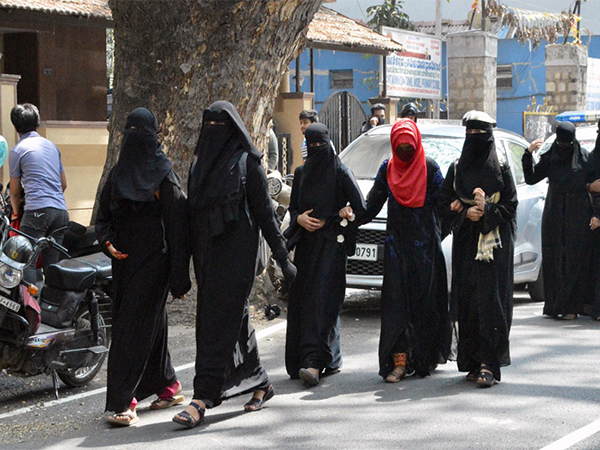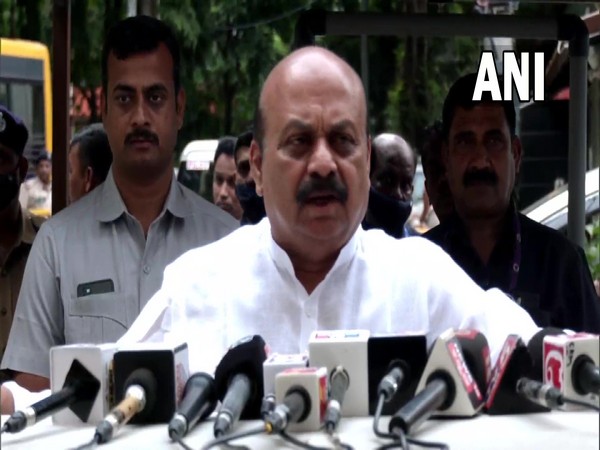The All India Bar Association (AIBA) has requested Chief Justice of India (CJI) UU Lalit that the Hijab issue be referred to a larger bench of a minimum of five judges including one Muslim judge in the Supreme Court after split judgments on this issue by the two judges today.
In a letter to CJI, Dr. Adish C Aggarwala, Senior Advocate and Chairman of AIBA, has pointed out that the then Chief Justice NV Ramana has erred in constituting the bench which included Justice Hemant Gupta who was to retire on October 16, 2022, and Justice Sudhanshu Dhulia who was recently appointed to Supreme Court on May 9, 2022.
“I may point out that judges were not having a reasonable time to adjudicate the issue as it is evident from the fact that Justice Sudhanshu Dhulia’s main thrust of his judgment is that the concept of ‘essential religious practice’ was not essential for the disposal of the dispute,” said Aggarwala.
Senior Advocate Aggarwala further quoted the Supreme Court judgment stating, “Justice Dhulia said in his judgment that ‘The court (High Court of Karnataka – added for clarification) probably took the wrong path. It was simply a question of Article 19(1)(a), its applicability, and Article 25(1), primarily. And it’s ultimately a matter of choice, nothing more or nothing less.”
He said that due to a shortage of time, it has been overlooked by Justice Sudhanshu Dhulia that Muslim students, in Karnataka High Court took the plea that the “Hijab is part of the essential religious practice in Islamic faith”.
“Justice Dhulia took a diametrically opposite view and struck down the High Court verdict. I was fully aware that the present Bench will be not in a position to adjudicate the issue due to shortage of time, I have not intervened in the matter in Supreme Court although I intervened before the High Court of Karnataka”, said Dr. Aggarwala, who was also Vice Chairman of Bar Council of India and Supreme Court Bar Association.
He further urged CJI to refer the matter to a larger bench of the Supreme Court.
“In the fairness of the matter, it is humbly prayed that the Hijab matter is referred to a larger bench of 5 senior Judges including one Muslim Judge in the Supreme Court as this issue is the most important matter for all citizens of India,” he said.
He also suggested that while constituting the Bench, it should be advised to hold a day-to-day hearing.
“If Justice S Abdul Nazeer declines to be in the Bench, then CJI should mention this fact in the order constituting the larger bench to hear the Hijab matter. While constituting the Bench, the Bench be advised to hold a day-to-day hearing as Justice Nazeer is to retire on January 4, 2023. The world is watching the Supreme Court of India as it is a torch bearer in protecting India’s democracy, states a press statement issued by AIBA.
A two-judge bench of Justices Hemant Gupta and Sudhanshu Dhulia pronounced the judgment today.
While Justice Hemant Gupta stated that was a “divergence of opinion” as he dismissed the bunch of petitions against the March 15 Karnataka High Court order on the hijab matter, Justice Sudhanshu Dhulia allowed the appeals and set aside the HC verdict.
“It’s a matter of choice, nothing more nothing less,” Justice Dhulia said while pronouncing the order.
Justice Gupta said, “There is a divergence of opinion. In my order, I have framed 11 questions. First is whether the appeal should be referred to the Constitution Bench.”
Advocate Ezaz Maqbool, representing the petitioner said that the matter would be placed before the Chief Justice of India and he would decide whether a new bench would hear the matter or the case gets referred to a larger bench.
The apex court had earlier reserved its order on various petitions challenging the Karnataka High Court upholding the ban on hijab in educational institutes.
The arguments in the matter went on for 10 days in which 21 lawyers from the petitioners’ side and Solicitor General Tushar Mehta, Additional Solicitor General KM Nataraj, Karnataka Advocate General Prabhuling Navadgi argued for the respondents.
The court was hearing various pleas challenging the Karnataka HC’s judgment upholding the Karnataka Government’s decision to direct educational institutes to prescribe uniforms in educational institutes.
One of the appeals in the top court had alleged “step-motherly behavior of government authorities which has prevented students from practicing their faith and resulted in an unwanted law and order situation”.
The appeal said the High Court in its impugned order “had vehemently failed to apply its mind and was unable to understand the gravity of the situation as well as the core aspect of the Essential Religious Practices enshrined under Article 25 of the Constitution of India”.
A bench of Karnataka High Court comprising Chief Justice Ritu Raj Awasthi, Justice Krishna S Dixit, and Justice JM Khazi had earlier held that the prescription of uniform is a reasonable restriction that students could not object to and dismissed various petitions challenging a ban on hijab in education institutions saying they are without merit.
The hijab row erupted in January this year when the Government PU College in Udupi allegedly barred six girls wearing the hijab from entering. Following this, the girls sat in protest outside the college over being denied entry.
After this, boys from several colleges in Udupi started attending classes wearing saffron scarves. This protest spread to other parts of the state as well leading to protests and agitations in several places in Karnataka.
As a result, the Karnataka government said that all students must adhere to the uniform and banned both hijab and saffron scarves till an expert committee decided on the issue.
On February 5, the pre-University education board released a circular stating that the students could only wear the uniform approved by the school administration and that no other religious attire would be allowed in colleges. (ANI)
Read More:http://13.232.95.176/


